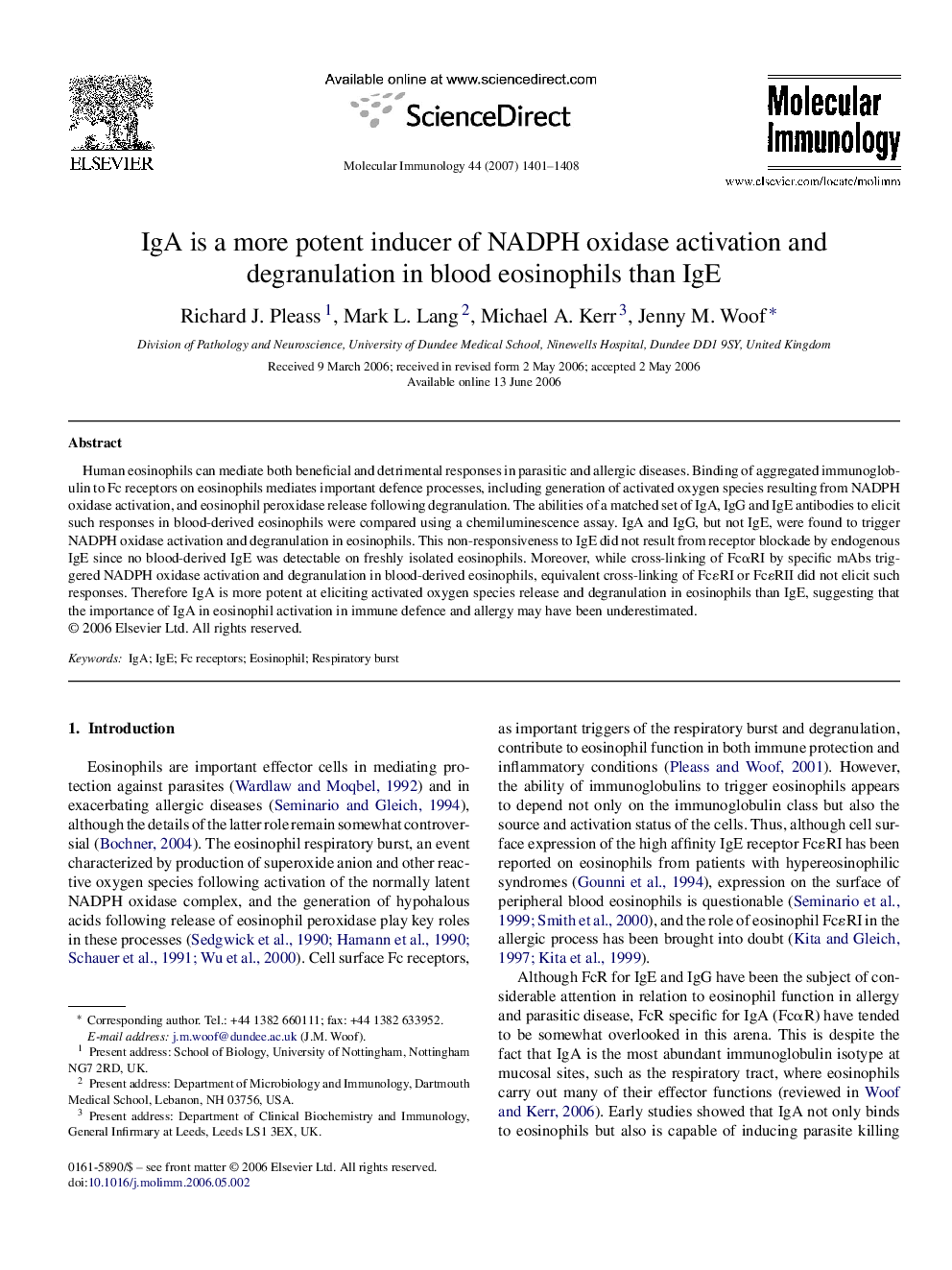| Article ID | Journal | Published Year | Pages | File Type |
|---|---|---|---|---|
| 2832494 | Molecular Immunology | 2007 | 8 Pages |
Human eosinophils can mediate both beneficial and detrimental responses in parasitic and allergic diseases. Binding of aggregated immunoglobulin to Fc receptors on eosinophils mediates important defence processes, including generation of activated oxygen species resulting from NADPH oxidase activation, and eosinophil peroxidase release following degranulation. The abilities of a matched set of IgA, IgG and IgE antibodies to elicit such responses in blood-derived eosinophils were compared using a chemiluminescence assay. IgA and IgG, but not IgE, were found to trigger NADPH oxidase activation and degranulation in eosinophils. This non-responsiveness to IgE did not result from receptor blockade by endogenous IgE since no blood-derived IgE was detectable on freshly isolated eosinophils. Moreover, while cross-linking of FcαRI by specific mAbs triggered NADPH oxidase activation and degranulation in blood-derived eosinophils, equivalent cross-linking of FcɛRI or FcɛRII did not elicit such responses. Therefore IgA is more potent at eliciting activated oxygen species release and degranulation in eosinophils than IgE, suggesting that the importance of IgA in eosinophil activation in immune defence and allergy may have been underestimated.
